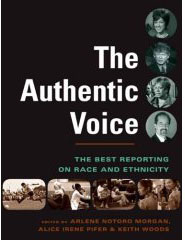Tale of Two Cultures: A Pharmacist Learns to Reach Across the Divide
By Elizabeth Llorente
The Record
Part 1 available in The Authentic Voice
Anthony Giannantonio remembers them falling like dominoes.
One by one, in the late 1980s, his fellow merchants closed their shops and left town. The recession had hit, malls were luring away customers, and an influx of Koreans – with unfamiliar needs and tastes – had arrived in town. But Giannantonio, whose pharmacy is celebrating its 41st anniversary this fall, wouldn’t give up.
Palisades Park was where he was born, had always lived, had delivered newspapers as a kid, had been an altar boy at St. Nicholas Church. It was where he had been a Little League coach, Cub Scout master, and president of the Chamber of Commerce and the Board of Education. The list goes on.
Equally important, he was the son of Luisa and Antonio Giannantonio, a poor Italian couple who, like so many immigrants before and after them, refused to shrink from a challenge. “It takes real effort, patience, to understand different cultures and adjust to them,” Giannantonio, 65, said. “But it can be done.”
At first, Giannantonio felt uneasy about his new neighbors. “When Koreans came in to fill a prescription, they’d come late at night, about 8 or 9 p.m., and want us to hurry,” Giannantonio said. “Sometimes they’d get in front of other people who’d come first, and want to be taken care of. I thought it was rude and discourteous.”
Giannantonio, a small, mild-mannered man with reassuring blue eyes and thinning white hair, got to work. He hired two Korean pharmacists. He found out how to say hello in Korean. He put up Korean-language translations throughout the pharmacy. He made donations to the Korean church and to Korean customers’ charities.
As his world entwined with theirs, things began to make sense. “I realized why they were always coming in late and harried, in such a rush,” he said. “I learned that they worked very long hours and got out of their work at 8 or 9 p.m. They were anxious to get home to their children and to eat. A lot of them worked straight, without even eating.”
He discovered, too, that Korean customers were unaware that they could call in an order instead of waiting for it in the pharmacy.
“There was misunderstanding on both sides,” said Giannantonio, who counts 100 Kims among his clients. “Now some are calling, which makes a difference. Some are still embarrassed to call, because of their English, I think. But it’s getting better.”
His reach across the ethnic divide surpassed his pharmacy. He was among the few local American-born merchants to participate in the town Chamber of Commerce when it became predominantly Korean. He gently persuaded the business group to drop the ethnic reference in the Korean Chamber of Commerce, and replace it with Palisades Park. It did — and it went one step further. The members overwhelmingly named him their vice president. Some Koreans, in fact, nominated him for president.
At Giannatonio’s suggestion, the chamber began its meetings with the Pledge of Allegiance, reading from copies he gave to each member.
In turn, he has made concessions. When a new Korean customer comes into his pharmacy, moving ahead of others in line, he spirits them off to the side.
“I just take care of them before anyone gets annoyed and says something,” said Giannantonio, who normally doesn’t work at the pharmacy’s front counter. “And, of course, I explain about calling in orders.”
He also patiently sits through the Chamber of Commerce meetings, which are still held in Korean with an interpreter.
When the interpreter doesn’t attend, Giannantonio conceded, he misses entire discussions. But intercultural understanding, he said, comes after a series of small steps.
“People come over to you, warm up to you, if they see you’re trying,” Giannantonio said, as Koreans milled about his store and said, “Hello, Mr. Anthony.”
“When I say hello to older Italians in Italian, they’re thrilled,” he said. “They appreciate it. It’s just how people are.”
Kyung Cho, a customer who credits Giannantonio with helping her through a difficult medical condition, said the pharmacist keeps her optimistic about racial harmony in Palisades Park.
“As long as this town has Mr. Anthony, we’ll be fine.”
Return to Series: A Tale of Two CulturesMore Stories: The Authentic Voice
Resources: Diverse and Divided and A Tale of Two Cultures
 Reporter Elizabeth Llorente shines a light on the often invisible lines that separate fear and bigotry, perception and reality, legitimate anger and ignorance-inspired bitterness in her series for The Bergen Record. She shows how strong, deep, on-the-ground reporting, informed by research and bolstered by the conscious development of key sources, can take a journalist past cliches, platitudes and shallow suspicions and into the undiscovered core of demographic change.
Reporter Elizabeth Llorente shines a light on the often invisible lines that separate fear and bigotry, perception and reality, legitimate anger and ignorance-inspired bitterness in her series for The Bergen Record. She shows how strong, deep, on-the-ground reporting, informed by research and bolstered by the conscious development of key sources, can take a journalist past cliches, platitudes and shallow suspicions and into the undiscovered core of demographic change.
Teacher’s Guide: Diverse and Divided and A Tale of Two Cultures
